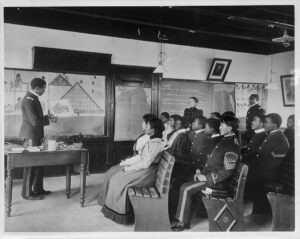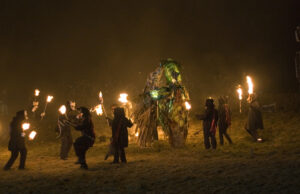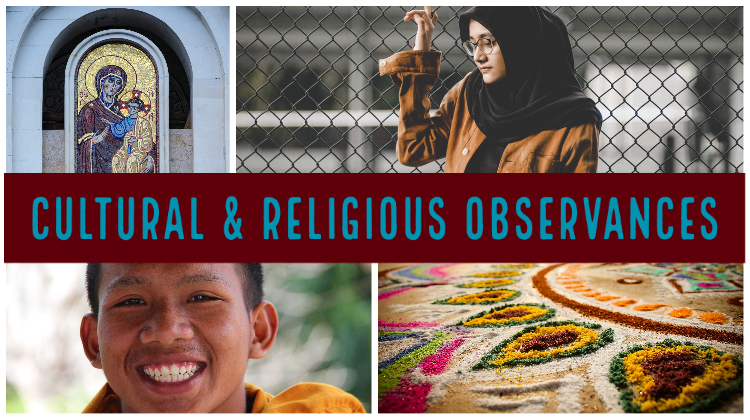African American History Month
Culture/religion: National observance
Date: February

African American History Month, also known as Black History Month, evolved out of “Negro History Week,” which was first celebrated in 1926, sponsored by the Association for the Study of Negro Life and History* (ASNLH). The ASHLH chose the second week of February to celebrate Negro History Week to coincide with the birthdays of Abraham Lincoln and Frederick Douglass.
For decades after the first celebration, mayors around the nation began issuing yearly proclamations recognizing Negro History Week. In the late 1960s, many college campuses began recognizing Black History Month, in part to the civil rights movement and a growing awareness of Black identity.
In 1976, President Gerald Ford officially recognized February as Black History Month. Every president since has done the same.
*Now known as the Association for the Study of African American Life and History (ASALH).
Sources:
AfricanAmericanHistoryMonth.gov
African American History Month, Library of Congress
Imbolc
Culture/religion: Pagan/Wiccan
Date: February 2

Imbolc is a Gaelic traditional festival, about halfway between the winter solstice and the spring equinox, signifying the beginning of spring. Imbolc is typically celebrated around February 1.
Imbolc was a festival of hearth and home, and a celebration of the lengthening of the days and the early signs of spring. The lighting of candles and fires represent the return of warmth and the increasing power of the sun.
Imbolc is one of four Gaelic seasonal festivals during the year: Samhain, Beltane and Lughnasadh.
Sources:
Imbolc, Wikipedia

